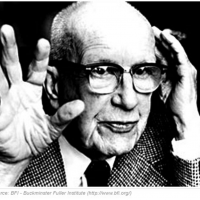2” Gas Line
My pool installer is running a 2” gas line from the meter to the pool heater 160’ away, with a 1” auxiliary line to a fire pit about 60’ from the meter.
The meter has a 1” feed from the utility and a 1” outlet.
I’m concerned that the pressure drop will impact the heater and cause it to turn on and off, especially if I build a small fire.
The heater won’t be running a lot, given the pool cover and warm day temps.
Am I worried for no reason? It seems opposite of my thinking, to go from a 1” feed to a 2” supply.
Comments
-
The total pressure drop is what matters.
A foot of 1" isn't great but 160' of it would cause a lot more drop.
look at it as that 160' long 2" pipe just behaves like a much shorter 1". It's like moving the pool heater closer.
Single pipe 392sqft system with an EG-40 rated for 325sqft and it's silent and balanced at all times.
1 -
Meter capacity can be surprising. I see smaller meters than mains all the time. The main piping is just distributing gas volume with minimal pressure drop. BTU Load numbers? Your gas suppler should know your meters real world capacity well. Ask them.
0 -
Do you know the BTUH input of the pool heater?
Gas meters have a limit of how much gas they can pass.
0 -
That is why some states (including MA.) require a "letter of availability" from the utility before large gas equipment can be installed. Why connect something if the gas supply or meter is inadequate?
0 -
Because id expect the professional I hired to be able to determine that without approval from the state.
In my opinion the way NJ has been handling it seems to work well.
Single pipe 392sqft system with an EG-40 rated for 325sqft and it's silent and balanced at all times.
0 -
A typical meter might be a 250 CFH cubic feet per hour model. Each CF is 1037BTU = Just about 260,000 BTU/ HR
My experience is in line with this:
From someone asking a gas supplier about meter capacity.
"After consulting with Armstead Ward of PG&E’s gas division, it turns out that a meter can provide more gas than its rated capacity. For example, a meter that is rated for 275 cf/h, can actually provide 385 cf/h of “maximum continuous capacity.” This is based on laboratory testing of each gas meter, and unfortunately there is no standard formula to determine maximum continuous capacity vs. rated capacity. Mr. Ward recommended adding 15% to the rated capacity as a conservative estimate for the maximum continuous capacity."
So 298,000 BTU/hr might be close for a 250CFH model meter.
Note: bigger meter union spuds can be installed on the outlet to enlarge the main piping as early as possible.
Obviously expecting a 500,000 BTU heater to be ok will lead to predictable results.
If it's close, there's the proof is in the pudding method. Install the right size gas line and measure peak BTU use (everything on the meter) pressure drop at the far end (pool heater) and post meter. A big drop at both points indicates a restrictive meter/regulator that needs to be addressed. If there's no big pressure drop you're all good.
0 -
-
@ChrisJ I know what you posted to be true. I safely quoted the conservative PG and E added 15% number. but The proof is the pudding actual delivery is what counts. The important part is, can the main piping deliver the volume without a problem pressure drop. If the meter turns out to be too small, that is addressed as needed. Not know the high side pressure or even the heaters load it's hard to say anything more.
1 -
-
@ChrisJ too many people adding equipment and not caring if the supply can handle it. It's mostly for commercial but pool heater are a huge load. mot places will not allow any diversity on gas what ever is connected is the total load.
0 -
Isn't that part of the reason for being licensed?
Single pipe 392sqft system with an EG-40 rated for 325sqft and it's silent and balanced at all times.
0
Categories
- All Categories
- 87.5K THE MAIN WALL
- 3.3K A-C, Heat Pumps & Refrigeration
- 61 Biomass
- 430 Carbon Monoxide Awareness
- 122 Chimneys & Flues
- 2.1K Domestic Hot Water
- 5.9K Gas Heating
- 118 Geothermal
- 170 Indoor-Air Quality
- 3.8K Oil Heating
- 78 Pipe Deterioration
- 1K Plumbing
- 6.6K Radiant Heating
- 395 Solar
- 15.9K Strictly Steam
- 3.5K Thermostats and Controls
- 57 Water Quality
- 51 Industry Classes
- 51 Job Opportunities
- 18 Recall Announcements



